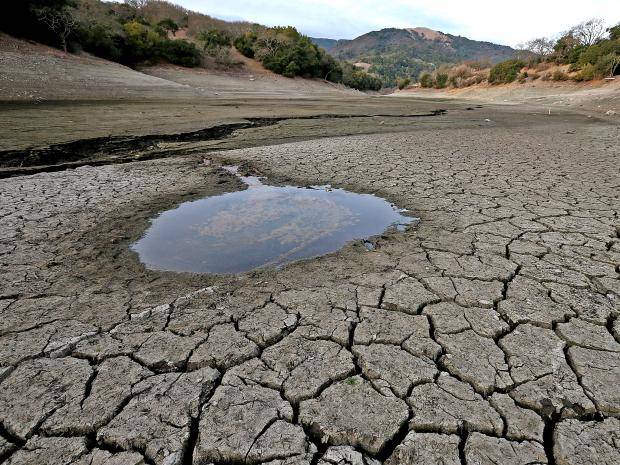
Capitalism vs. nature: The fight for a greener planet
by Joseph Bennett
Impacts of Climate Change
According to a 2016 study by the journal ‘Science Advances’ the world could warm by between 4.8 and 7.4 degrees Celsius by the end of the century. Such warming will significantly change the patterns of temperatures, crops, animals, rainfall and life worldwide, constituting a major threat to social and economic organisation, and human life as we know it (Urry, 2010). British journalist George Monbiot lists the top two foreseeable threats of such change: industrial fishing, which is “degrading ocean ecosystems to the point of collapse”, and the “erasure of non-human life from the land by farming”.
Nature has its own ‘system of production’ (Foster, 2000) which produces goods sustainably and promotes the development of the diversity of life forms now in existence on Earth (Kovel, 2007). The disruption of such system causes various forms of environmental instability. For example, in the modern era is climate change (Lovelock & Lovelock, 2000). Other forms of environmental instability include the increase in pollution, this pollution changing locations, forms and scale, as well as the destruction of wetlands and forests, and plants for example.
The impact capitalism has on nature
Karl Marx analysed capitalism and argued that raw materials and capital were required prior to being used in production, they are a prerequisite if you like. However, it was not Marx himself who exposed the obvious contradiction between nature and capitalism, yet rather ecological Marxists, arguing that in order for production to begin and to expand, inputs into the system must be available (Foster, 2000). This means that capitalism must increasingly consume larger quantities of natural resources in order for it to expand. Thus, such expansion of capitalism leads to the sheer escalation of environmental destruction through consumption of the raw materials in nature, in the production process.
The involvement of corporations in the movements towards environmental sustainability has, in turn, facilitated the decline of interest in the environment, according to Lynch and Stretsky (2003). They argue that large transnational organisations limit their pollution in amounts that meet established regulatory limits, being praised as ‘exemplary environmental citizens’, yet their production practices are often exploitive and non-sustainable… and even criminal in some countries! For example, a company spokesperson from ‘Chevron’ says it is “committed to managing its greenhouse gas emissions” and is investing ways to capture and store carbon, using two of the world’s largest carbon dioxide injection projects. A BP spokesperson also says it is “determined to be part of the solution” for climate change and is “investing in renewables and low-carbon innovation.” Yet these companies’ still use toxic substances, polluting the environment with Greenhouse gases day by day, showing are still committing transgressive green crimes, even if dodging the law (Lynch and Stretsky, 2003).
A movement known as the ‘The red-green movement’ links such environmental degradation by transnational corporations to economic oppression. They assert that the increase in capitalism and desire for more goods has externalizing costs that harm not only the environment but also public health (O’Connor, 1998). Commoner (1987) argues for ‘ecological socialism’, which is as a method of allowing the society being affected by negative environmental impacts to have a say in the means of production, simultaneously eliminating unsustainable, environmentally destructive production practices and the exploitative mode of production.
Looking to a more sustainable future
What is clear is that capitalism has an unending desire to accumulate and expand, with rather ecologically destructive consequences. Joel Kovel (2007) notes that, in the era of environmental awareness beginning in the 70’s, the ecological state of the world has clearly become worse, the last forty years being ‘the era of greatest environmental breakdown’. Thus we face a decision: the end of capitalism, or the end of the world as we know it. According to Kovel (2007), we are now ‘capitalism’s puppet’, acting according to its laws, letting it passively dictate us. He concludes that capitalism violates ‘the nature of nature’ as well as human nature, and thus needs to be replaced by a way of life that promotes the health of the planet, humans and other living species.
Therefore, to conclude, unless green criminology and legislation can become radical enough to take such a stance, one can only simply identify and act out ‘environmentally friendly’ actions on an individual or small-scale basis. The problem is capitalism and crimes of environmental disorganization. Therefore, the sooner green criminologists recognize this, the sooner corporations in a capitalist society can take action and help save the planet.
References
Commoner, B., 1987. A reporter at large: The environment. The New Yorker, 63(17), pp.46-71.
Foster, J.B., 2000. Marx’s ecology: Materialism and nature. NYU Press.
James Plested. 2018. Capitalism is costing the Earth. [ONLINE] Available online.. [Accessed 5 March 2018].
Kovel, J., 2007. The enemy of nature: The end of capitalism or the end of the world?. Zed Books.
Lovelock, J. and Lovelock, J.E., 2000. Gaia: A new look at life on earth. Oxford Paperbacks.
Lynch, M.J. and Stretesky, P., 2003. The meaning of green: Towards a clarification of the term green and its meaning for the development of a green criminology. Theoretical Criminology, 7(2), pp.217-238.
Lynch, M.J., Long, M.A., Barrett, K.L. and Stretesky, P.B., 2013. Is it a crime to produce ecological disorganization? Why green criminology and political economy matter in the analysis of global ecological harms. British Journal of Criminology, 53(6), pp.997-1016.
O’Connor, J.R. ed., 1998. Natural causes: Essays in ecological Marxism. Guilford Press.
Tess Riley. 2017. Just 100 companies responsible for 71% of global emissions, study says. [ONLINE] Available online. [Accessed 5 March 2018].
Urry, J., 2010. Mobile sociology. The British journal of sociology, 61(s1), pp.347-366.

0 Comments